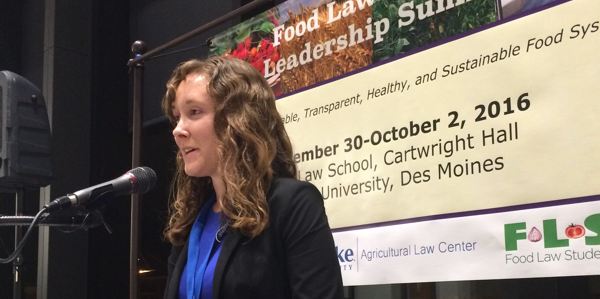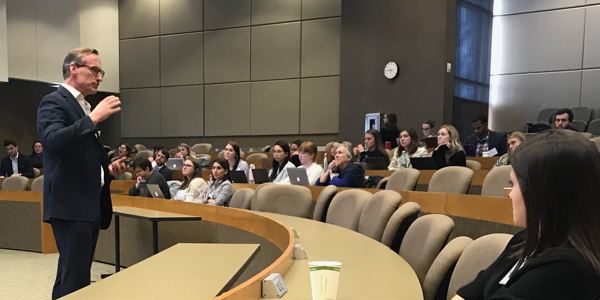LL.M. Program in Agricultural and Food Law




The LL.M. Program in Agricultural and Food Law at the University of Arkansas School of Law was the first of its kind when it was founded over 40 years ago. Today, it continues to lead the nation in this important area of law, connecting lawyers to our food system, from farm to table. Our LL.M. candidates are supported by a network of almost 400 alumni who provide mentoring and opportunities for collaboration.
We offer an expansive and fully-integrated curriculum instructed by nationally-recognized scholars and practitioners and designed specifically for LL.M. study. Students attend on-campus or by distance, full or part-time. Our distance students have the opportunity to participate in live classes by video-conference, with recorded classes and online opportunities to provide flexible programming. On campus, our students participate in a state-of-the-art classroom and enjoy Fayetteville, consistently ranked among the top ten best places to live in the U.S.
Distance students pay tuition at our very low in-state rate; on-campus students can apply for graduate assistantship opportunities that cover tuition fees and provide a monthly stipend. Only 24 credits are needed for the degree.
Outreach and experiential opportunities are available through the Food and Agriculture Impact Project. The Project provides support and technical assistance on variety of topics, offering students an opportunity to gain hands-on experience while providing valuable resources to the community.
Other food and agricultural expertise at the University of Arkansas School of Law include the Journal of Food Law & Policy and the nationally acclaimed Indigenous Food and Agriculture Initiative.
Take the Next Step
Class Spotlight
Selected Issues in Agricultural & Food Law: LL.M. Alumni Expertise
This special course celebrates 40+ years of LL.M. graduates by asking some of our most distinguished alumni to teach about a substantive area of law from their current practice/teaching experience. Each week features a different alum and a new topic. The course not only explores new areas of agricultural and food law, but also showcases the many career opportunities available, connecting current students to leaders in the field.
Program Spotlight
Food and Agriculture Impact Project
“The Food and Agriculture Impact Project supports research and education for farmers, businesses, and food and agriculture organizations. Building on the LL.M. Program’s expertise, the Project provides support and technical assistance on variety of topics, offering students an opportunity to gain hands-on experience while providing valuable resources to the community.”
What We Offer
What Can You Do with an LL.M. Degree?
By completing the 24 credit hours required for this degree, dozens of career paths become available. The specialized expertise provided by the LL.M. Program in Agricultural and Food Law prepares students for careers in everything from policy to education.

Policy
Opportunities for program alumni are available in the federal government and at state agencies, including departments of agriculture, natural resources, and environmental quality.

Practice & Business
In practice, program alumni work in private law firms and as corporate counsel, representing farmers, food businesses, consumers, and environmental advocates. In business, alumni work in leadership and compliance.

Advocacy
Our alumni support advocacy groups, trade associations, and non-profit organizations, serving agricultural, consumer, and environmental interests.

Education
Alumni also pursue roles in academia, teaching at law schools, undergraduate colleges, through the extension service, and at community colleges.
Join Our Campaign
Make a donation to help support our LL.M. program in Agricultural and Food Law.